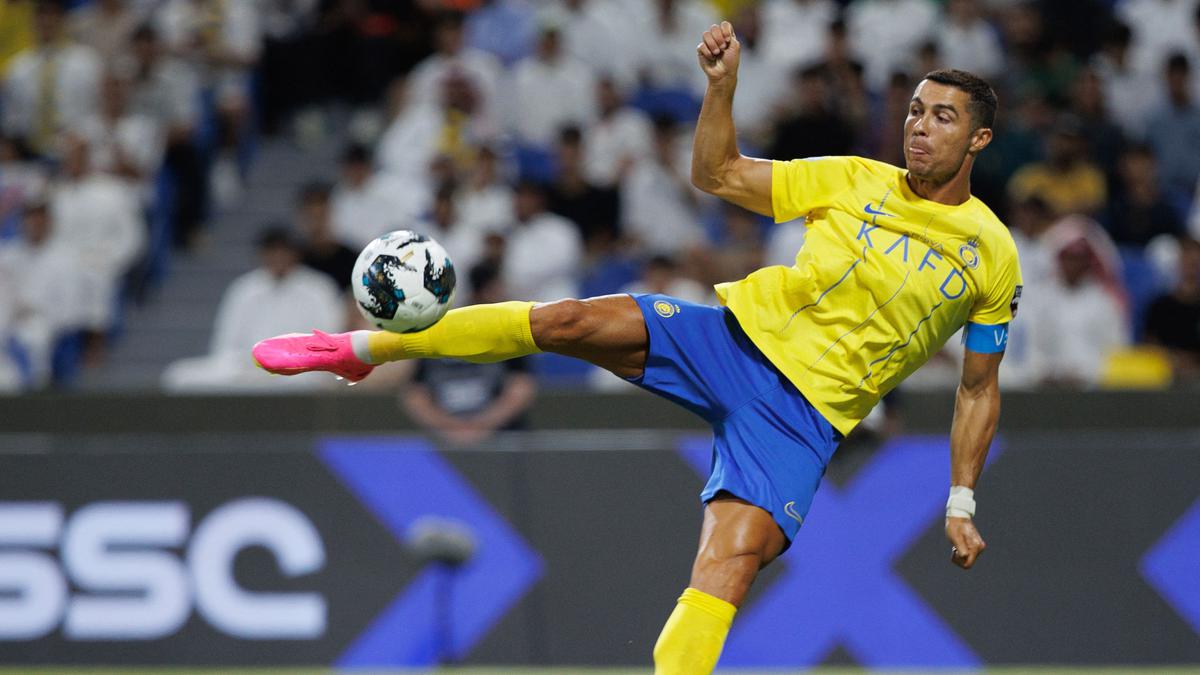
The Saudi challenge to European supremacy Premium
The Hindu
With Saudi Arabian clubs offering ludicrous deals and managing to attract star players, global attention is diverting from European leagues.
With Saudi Arabian clubs offering ludicrous deals and managing to attract star players, global attention is diverting from European leagues.
Saudi pro league club Al-Hilal made French club Paris Saint Germain an offer of a mind-blowing €300 million for its talismanic forward Kylian Mbappe last week. Though the move is highly unlikely, with reports suggesting that Mbappe has refused to negotiate, it could have been the most expensive in the game’s history, surpassing the €222 million PSG paid to FC Barcelona for Neymar Jr. While Mbappe’s future remains uncertain, the offer is a strong statement from the Saudi club and the Saudi league: they intend to challenge European supremacy over club football.
Europe is seen as the undisputed ruler of club football, be it popularity, telecast figures or economics. The UEFA Champions League was, and is, considered to be the most prestigious trophy a football club could win. While European national teams don’t hold a clear superiority, it remains an unwritten rule that players from other continents have to prove themselves in Europe to gain stardom.
Chinese clubs tried to challenge this system when Shanghai SIPG signed the Brazilian Oscar from Chelsea at a ripe age of 25 with an annual salary around €30m. But the Chinese revolution ended as quickly as it began as the government came in the way, bringing in regulations, like salary caps.
But the case of Saudi clubs is different. They have the state’s backing. Saudi League made the first ripple when Al Nassr signed Cristiano Ronaldo from Manchester United in December 2022 on a two-and-a-half-year deal estimated to be worth around €200 million, bringing with him a huge fan following and global broadcast deals. But the move was not too surprising as it was common for European stars to spend the twilight of their careers outside Europe where leagues are less challenging, and wages are high.
David Beckham popularised this trend with his move to LA Galaxy in the U.S. Major League Soccer, where the likes of Zlatan Ibrahimovic — though he came back to Europe and helped AC Milan reclaim the scudetto — and Wayne Rooney followed. Spanish midfield maestro Andreas Iniesta moved to Japan after his European career while his partner in crime Xavi chose to hang up his boots in Qatar.
What we see now with Saudi is different. It is not players wishing to ride out their careers who are making the move. Following Ronaldo, 35-year-old Karim Benzema made the move to Al Ittihad this summer, with a three-year deal that could earn him €200 million annually and received an extravagant reception during his presentation. He easily had the form and physique to continue at the top of Real Madrid’s attacking trident for at least a year.













